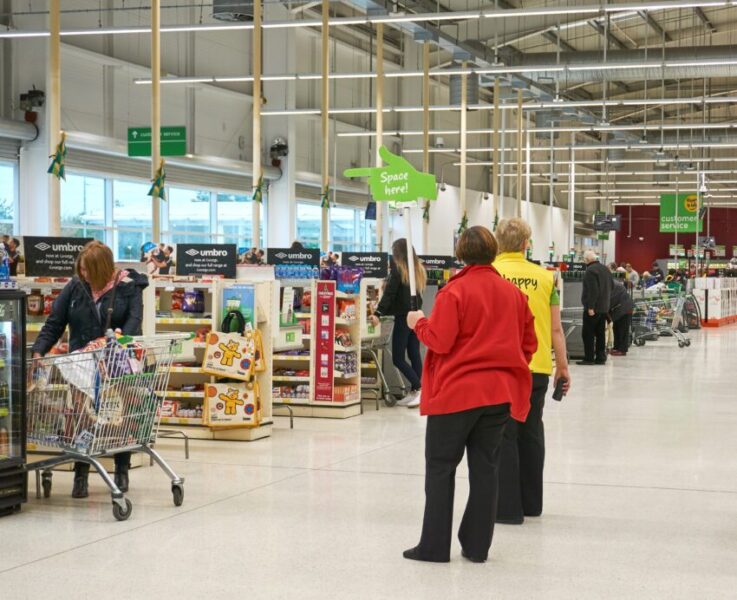Over a million low-paid workers in the UK are set to receive a wage increase of about 6% next year, as the government pledges to raise the national living wage to £12.10 an hour.
The Low Pay Commission, following Labour’s directive to ensure a “genuine living wage,” has outlined plans for the increase and may recommend a higher figure before the upcoming budget.
Currently, the national living wage stands at £11.44 an hour, and the proposed rise is part of Labour’s commitment to “raise the floor on wages,” according to Deputy Prime Minister Angela Rayner. She, along with Business Secretary Jonathan Reynolds, instructed the Low Pay Commission to ensure that the national living wage aligns with two-thirds of median earnings and reflects the cost of living, emphasising the importance of boosting low earnings during the current economic climate.
The commission’s latest projections suggest that wages will need to increase by about 5.8% to keep pace with current earnings, a significant rise from the earlier forecast of 3.9% made in March. The commission also noted that stronger-than-expected earnings growth in 2024 could push the required increase even higher.
Young workers aged 18 to 20 are likely to see even larger pay increases, as ministers aim to standardise wages across age groups. Currently, these workers can legally be paid £8.60 an hour, but the commission is moving towards a single adult rate, potentially aligning them with those aged 21 and over.
While the pay rise has been welcomed as positive news for low-paid workers, business leaders have expressed concerns. Tina McKenzie, board member of the Federation of Small Businesses, warned that without proper support, mandatory wage increases put intense pressure on small firms, making it harder for them to survive and recruit. “Labour costs are now the biggest pressure for small firms, with many responding to the April 2024 increase by becoming more cautious in hiring,” she said.
Paul Nowak, general secretary of the TUC, countered criticisms of Labour’s wage policy, likening them to the objections raised when the minimum wage was introduced by the Blair government in 1999. “Scaremongers of the minimum wage were wrong then, and they’re wrong about this as well,” he asserted.
Nye Cominetti of the Resolution Foundation pointed out that while the minimum wage has consistently risen above inflation in recent years, the changes under Labour’s new mandate may see even higher increases. He acknowledged that while the rise is good news for workers, businesses might have hoped for a more modest adjustment. However, he also noted that so far, fears of job losses linked to rising minimum wages have not materialised.
Despite the positive outlook, Cominetti cautioned that as wage levels continue to rise, the risk of negative employment effects grows, necessitating careful consideration by policymakers. “At some point, the trade-offs between higher pay and potential job losses become material,” he said, adding that no clear answer has yet been given regarding the acceptable impact on employment.
A spokesman for the Department for Business and Trade commented on the policy, saying: “We are changing the rules to put more money in working people’s pockets. But we have also been clear we need to consider the businesses who pay these wages, employment prospects, and the impact on the wider economy.”
The government remains focused on balancing the benefits of higher wages for workers with the needs of businesses and the overall economic impact.


